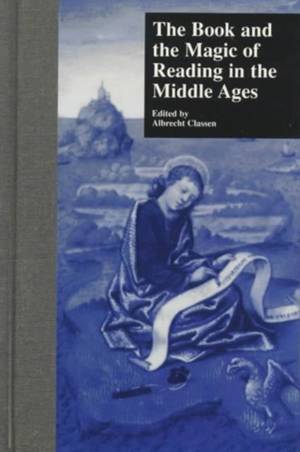
- Afhalen na 1 uur in een winkel met voorraad
- Gratis thuislevering in België vanaf € 30
- Ruim aanbod met 7 miljoen producten
- Afhalen na 1 uur in een winkel met voorraad
- Gratis thuislevering in België vanaf € 30
- Ruim aanbod met 7 miljoen producten
The Book and the Magic of Reading in the Middle Ages
Omschrijving
The computer revolution is upon us. The future of books and of reading are debated. Will there be books in the next millennium? Will we still be reading? As uncertain as the answers to these questions might be, as clear is the message about the value of the book expressed by medieval writers. The contributors to the volume The Bookand the Magic of Reading in the Middle Ages explore the significance of the written document as the key icon of a whole era. Both philosophers and artists, both poets and clerics wholeheartedly subscribed to the notion that reading and writing represented essential epistemological tools for spiritual, political, religious, and philosophical quests. To gain a deeper understanding of the cultural significance of the medieval book, the contributors to this volume examine pertinent statements by medieval philosophers and French, German, English, Spanish, and Italian poets.
Specificaties
Betrokkenen
- Uitgeverij:
Inhoud
- Aantal bladzijden:
- 350
- Taal:
- Engels
- Reeks:
- Reeksnummer:
- nr. 24
Eigenschappen
- Productcode (EAN):
- 9780815332305
- Verschijningsdatum:
- 1/04/1999
- Uitvoering:
- Hardcover
- Formaat:
- Genaaid
- Afmetingen:
- 153 mm x 220 mm
- Gewicht:
- 566 g

Alleen bij Standaard Boekhandel
Beoordelingen
We publiceren alleen reviews die voldoen aan de voorwaarden voor reviews. Bekijk onze voorwaarden voor reviews.










